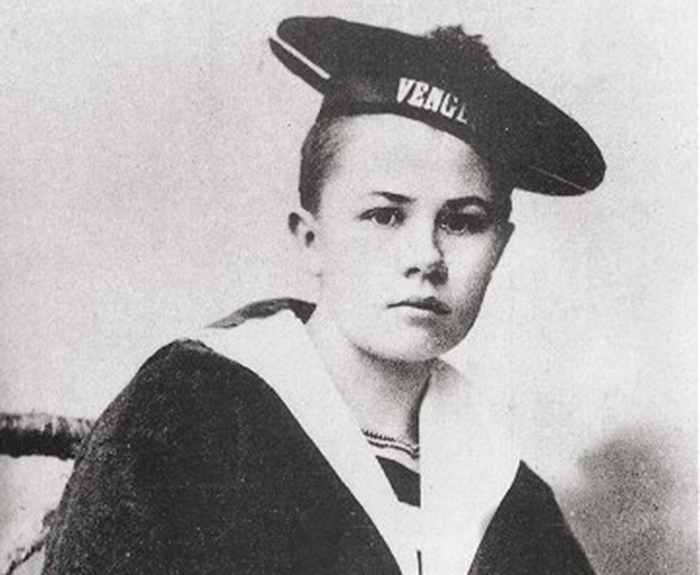by EMMA GARMAN

When the Swiss-Russian writer and explorer Isabelle Eberhardt died in the Algerian Sahara in 1904, she was physically ravaged. She was only twenty-seven, but heavy smoking, drinking, and drug use had taken their toll, as had poor nourishment. On her travels she’d carried a gun, but not a toothbrush, and so she had lost her teeth. She suffered from malaria and possibly syphilis, and just before her death had spent weeks hospitalized with fever. An assassination attempt a few years earlier, when a religious enemy attacked Eberhardt with a sword, had nearly severed her arm and left her in constant pain. Despite her youth, her body could no longer carry on. Her strange and brilliant mind, though, was immortalized by the travelogues, journalism, and fiction she left behind. “No one ever lived more from day to day than I, or was more dependent upon chance,” Eberhardt wrote shortly before her death. “It is the inescapable chain of events that has brought me to this point, rather than I who have caused things to happen.”
A devotee of Islam and a Sufi initiate, Eberhardt repeatedly invoked the principle of mektoub: it is written. It was an all-purpose fatalism that allowed her to accept heartache, since it was, in her words, “totally useless and absurd” to rebel against sorrow. She rebelled against nearly everything else. She had innumerable erotic encounters with young Arab men (“God made me sensual”) and gave free rein to the wanderlust that took her, in male guise, across the desert plains of North Africa. With preternatural boldness, she cast off all strictures—sartorial, behavioral, and sexual—associated with turn-of-the-century womanhood. Her early French biographer Claude-Maurice Robert marveled that she “drank more than a Légionnaire, smoked more kif than a hashish addict, and made love for the love of making love.”
The Paris Review for more
